Spring cleaning hacks that could totally ruin your floors, according to an expert
Don’t ruin your floors with these spring cleaning hacks, an expert warns
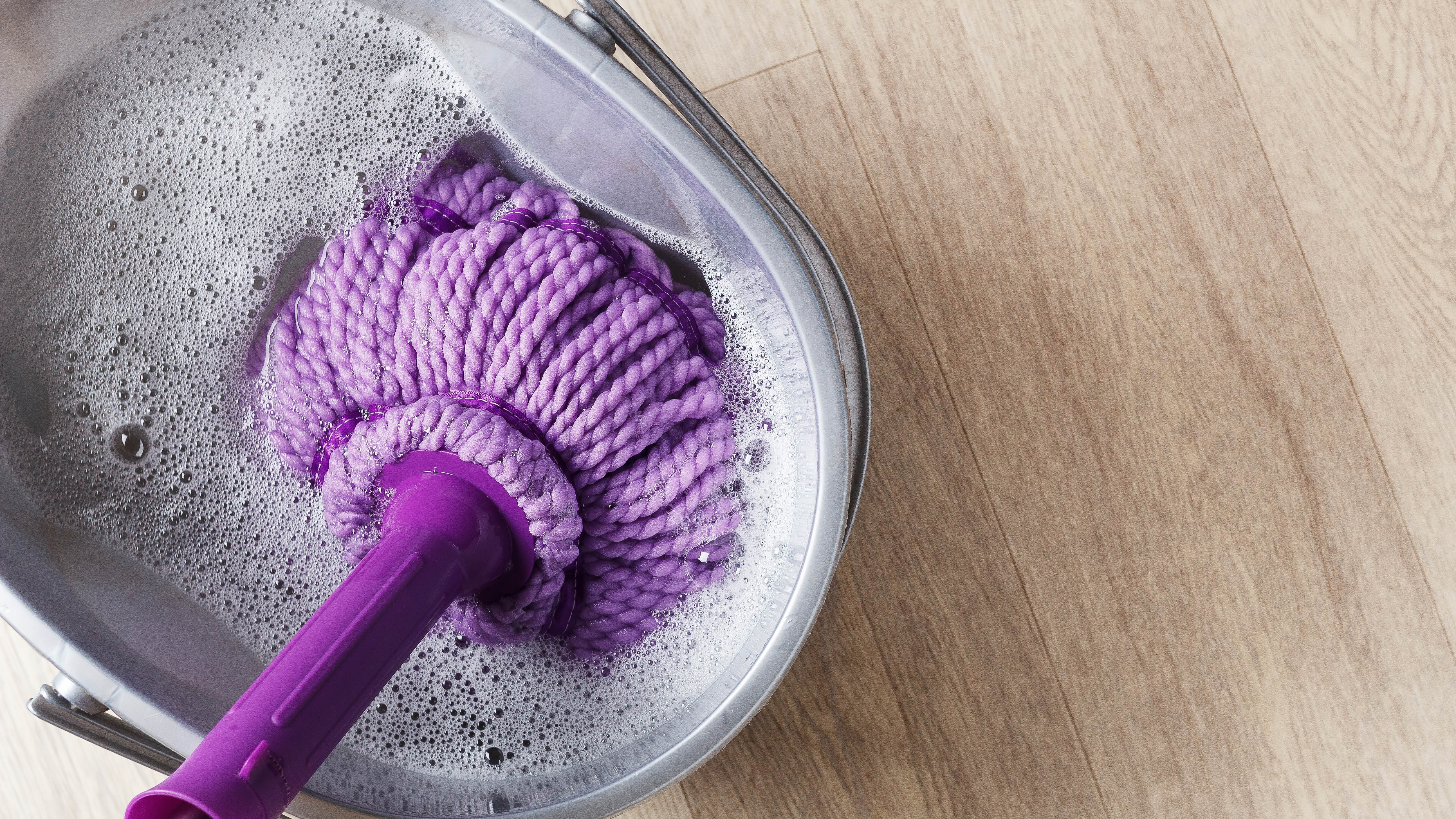
Spring is here, and it’s the ideal time to refresh your rooms, and declutter your home. And while this can be an arduous task, TikTok and social media are full of handy, cleaning hacks promising to help make the task quicker and easier.
But, while these clever hacks all seem fail-proof, according to experts, some are likely to do more harm than good to your home.
Our floors can get pretty grimy and dusty on a daily basis, especially if you have a busy household, children, or even pets running around. Owning one of the best vacuum cleaners will help and, if you have hardwood or laminate flooring, you’ll need to know how to clean hardwood floors properly to maintain it.
It’s no surprise that the ‘Cleantok’ community online has a range of hacks to quickly clean your floors, and get it sparkling again. But according to floor experts, many of these hacks are a no-no, and best to be avoided at all costs. Or else you could be forking out more money on expensive repairs!
So if you’re a fan of clever household tips, just beware of these spring cleaning hacks that could totally ruin your floors, according to an expert.
1. Using a steam mop on the wrong floor type
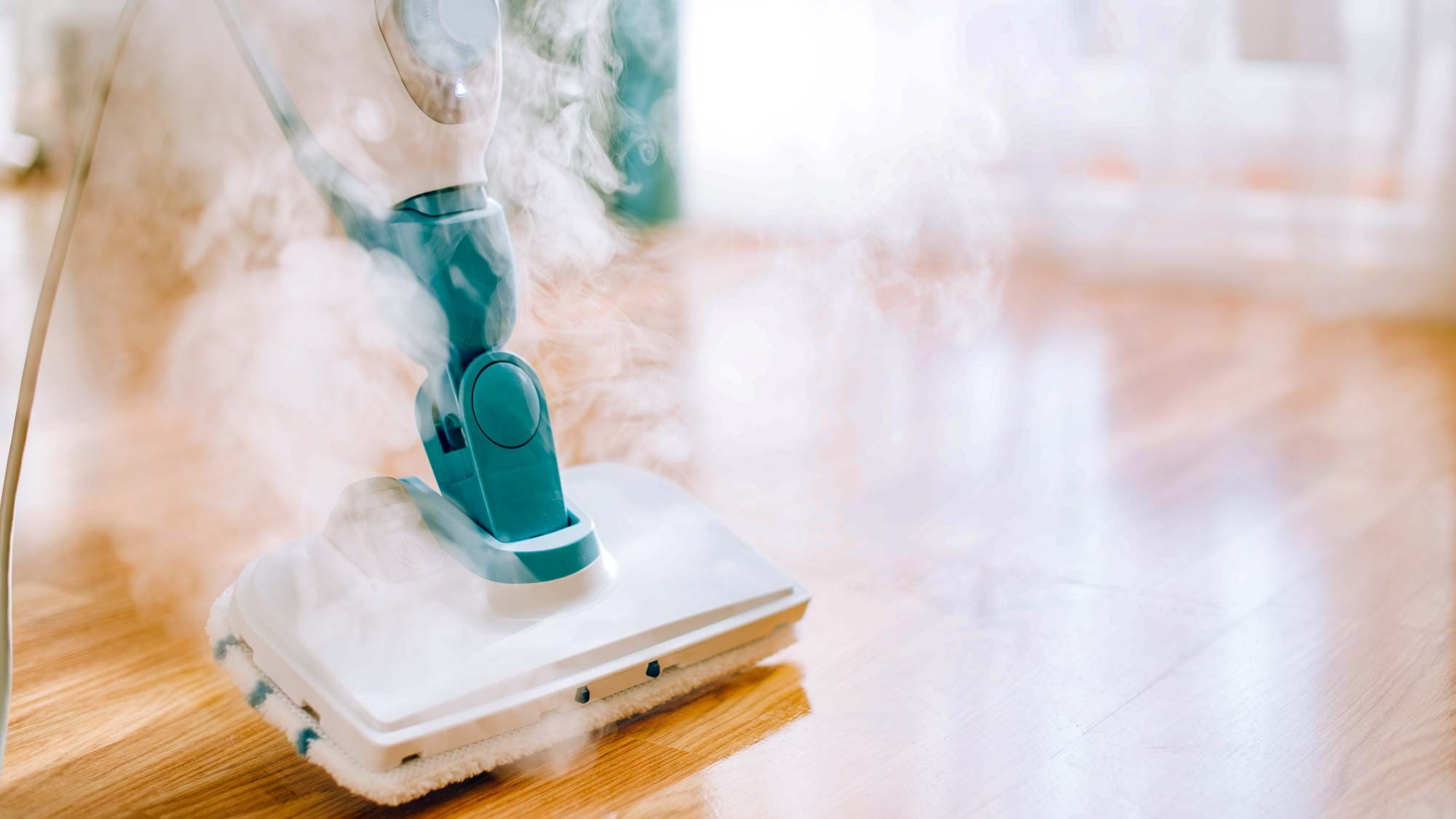
In theory, steam mops can be a great tool to effectively clean your floors and remove household germs. Once the water reaches 175-degrees F, it will sanitize surfaces effectively, and most steam mops can reach up to 250-degrees F — making them far superior to the mop and bucket.
However, steam mops should not be used on most types of flooring, including hardwood and laminate. “Steam cleaning floors is a fantastic way to loosen and remove stubborn dirt and you can buy specialist mops which release water vapor for this method. But, while tempting, steam cleaning should not be used on every type of floor,” says Alex Heslop, a floorcare expert from Flooring Superstore.
Sign up to get the BEST of Tom's Guide direct to your inbox.
Get instant access to breaking news, the hottest reviews, great deals and helpful tips.
“Avoid using steam on hardwood, laminate, vinyl and natural stone floors, including marble, as it can cause lasting damage. Steam mops work particularly well on ceramic and porcelain tiles and is therefore an effective way to deep clean bathrooms.
“Bathrooms, being typically damp and warm, are an ideal breeding ground for bacteria, viruses and even mould, so this room should be your first port of call when it comes to a deep steam clean to eliminate germs and leave your floors sparkling clean.”
Read what happened when a steam mop damaged our Homes Editor’s floors.
2. Mopping floors with laundry pods
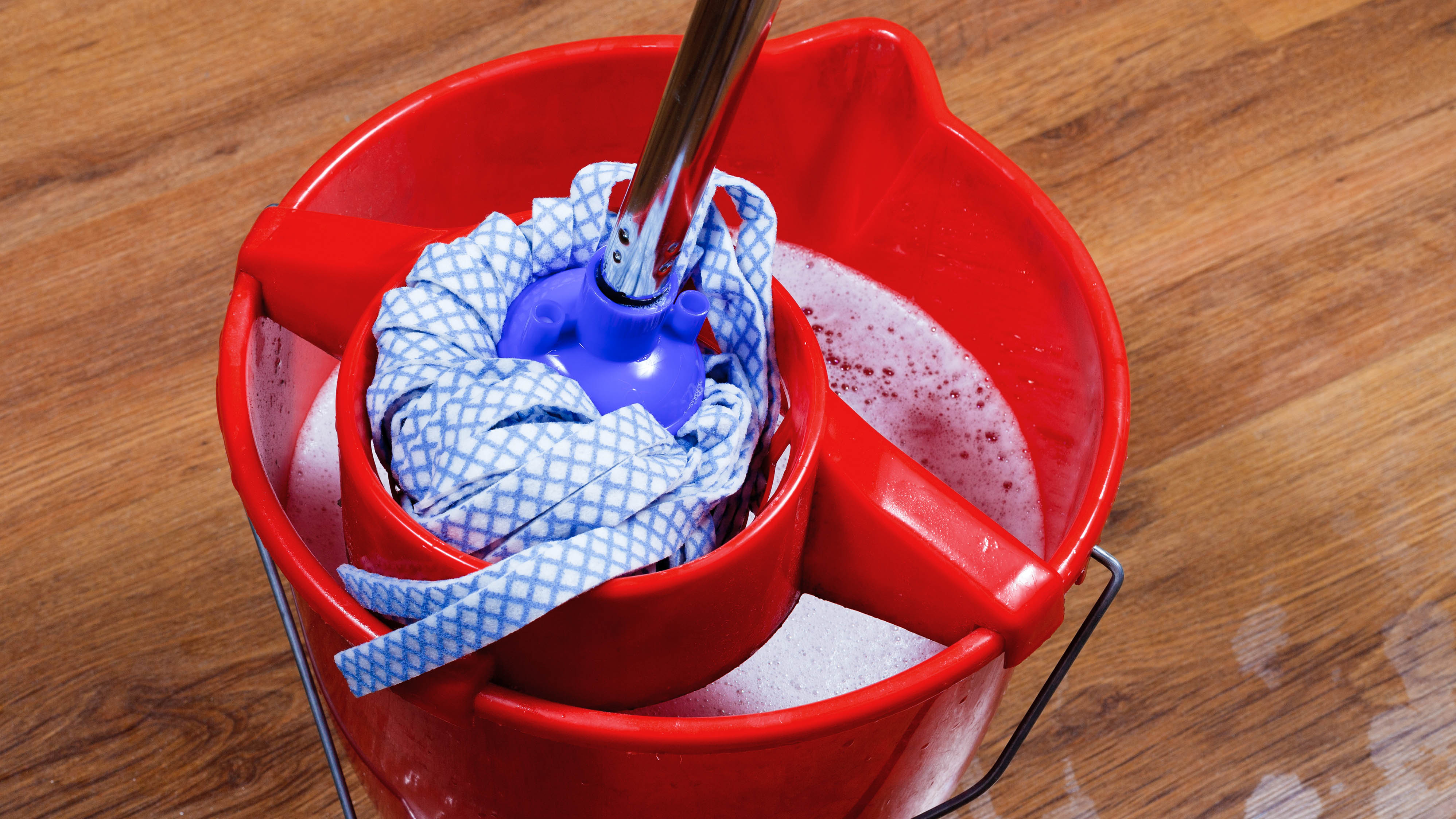
This cleaning hack of mixing laundry pods into hot water to wash floors soon became viral, with claims that the pods will lift out stains and make it sparkle. However, this is not recommended at all for several reasons.
“Mixing hot water and laundry pods to clean your floors is one of the more recent TikTok cleaning trends, but not every hack should be followed," Heslop said. "Homeowners should be wary of mixing cleaning products containing different chemicals which aren’t designed to be used together, as in some circumstances, this can cause chemical damage to surfaces and even let off dangerous fumes.
“Abrasive cleaners could also scratch and dull the finish or even leave a residue which dulls the finish and makes it slippery to walk on. And it’s not just the chemical content of laundry detergent to be wary of — these products can contain hard fragments like salt which could scratch your floor beyond repair.
“Stick to a regular vacuuming schedule and avoid over-wetting and soap-based detergents when it comes to hardwood and laminate flooring. Laundry pods are specifically designed for cleaning clothes and use for washing machines only, so contain chemicals that can do more harm than good to your flooring.”
3. Carpet scraping
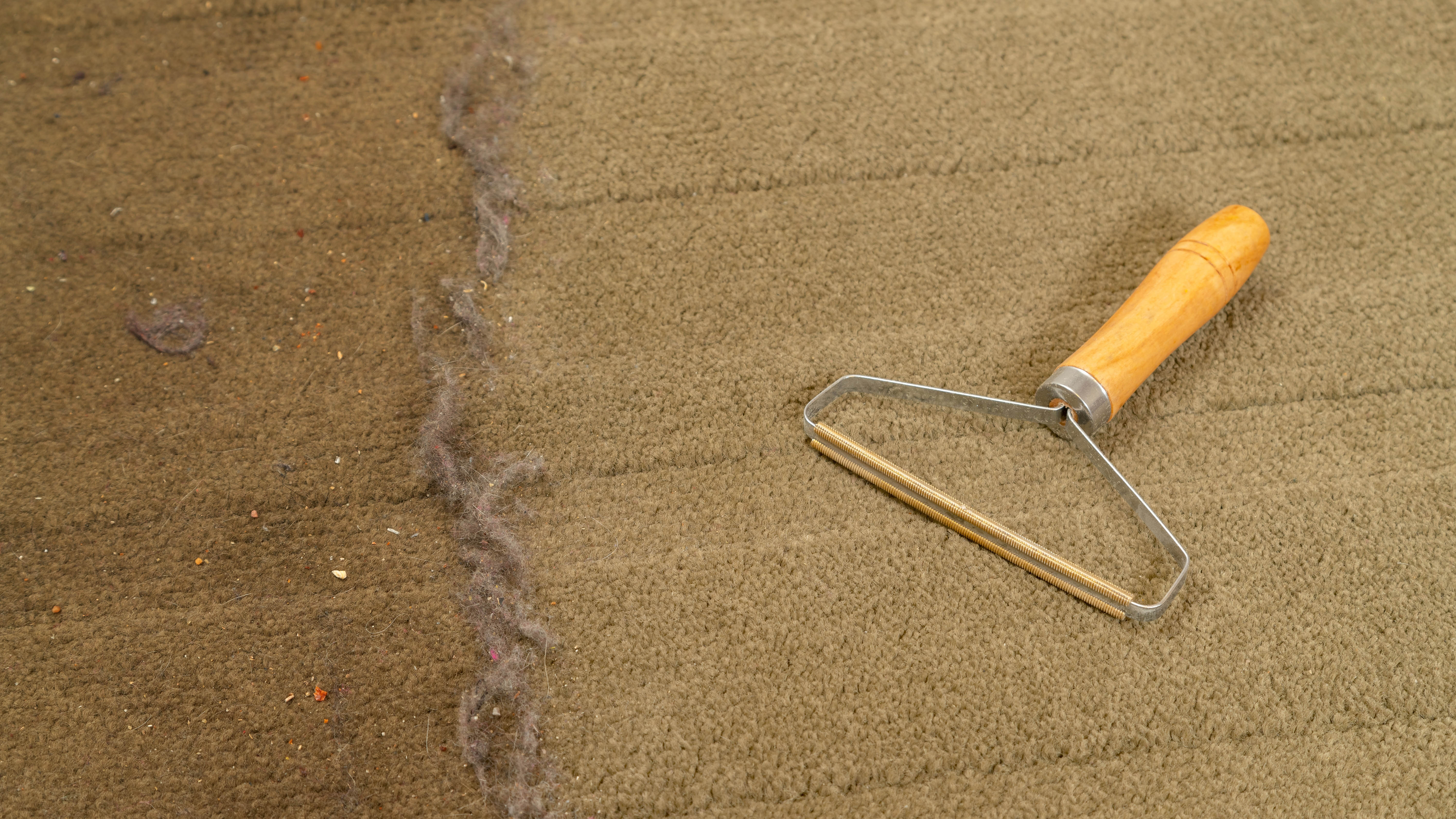
Another popular TikTok cleaning craze right now is carpet scraping. This simply involves pulling a sharp, carpet scraper across grimy carpets or rugs in order to lift up dirt, hair strands, and dust to make it easier to remove.
But according to experts, carpet scraping could scrap away at the fibers, literally causing bald patches or lasting damage.
“While it’s no doubt satisfying to watch, you are in fact causing damage to the carpet by removing the fibers, which over time will cause balding," Heslop said. “Carpet scraping, even just once a year, will cause lasting damage. Investing in a good quality vacuum cleaner and having a routine clean each week should be enough to keep your floors fresh and avoid a build-up of dust and dirt. For a more thorough spring clean a once-over with a household carpet cleaner or a specialist carpet steam cleaner should be considered, depending on the condition of your carpet, but scraping tools should be avoided at all costs.”
Or you can always rent or buy a carpet cleaner if all else fails too.
4. Using fabric softener to freshen up carpets
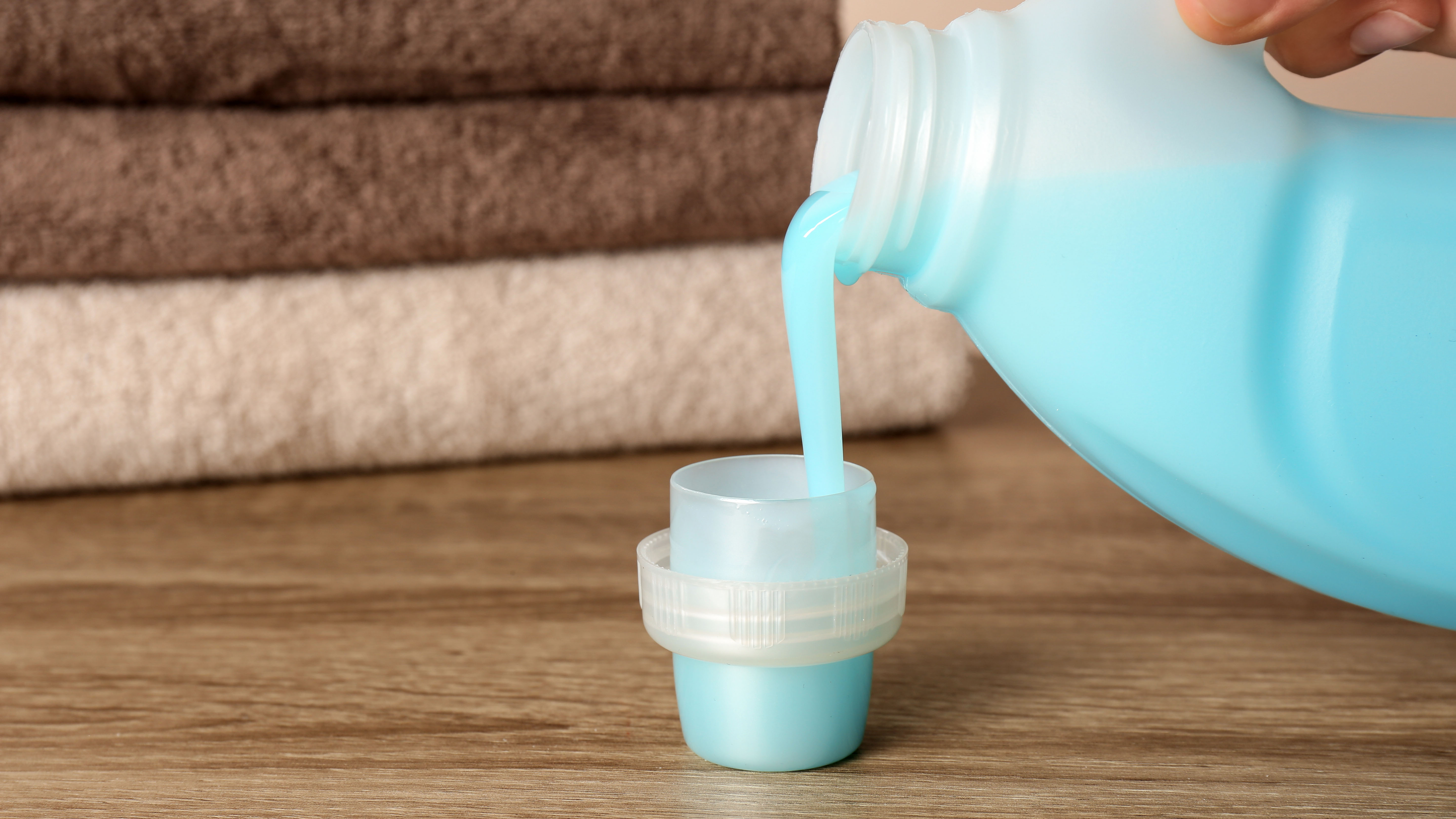
Fabric softener is typically used for making our laundry soft and smelling fresh, so it isn’t any wonder that freshening up carpets with softener had become another cleaning hack.
“Freshening up your carpets with fabric softener is a trend made popular by several cleaning influencers, but it can actually have the opposite effect and make your carpets and rugs even dirtier," Heslop said.
“While some influencers advocate mixing fabric softener with washing gel and warm water and dabbing this onto your rug with a clean cloth – this can negatively impact the flame retardancy of the flooring and also leave behind a greasy residue, which can make more dirt cling to the fibers. For a deep spring clean, a professional clean of your carpets will help maintain the look of your carpet for years to come.”
In fact, the best way to freshen carpets or clean a rug is to make your own DIY cleaning product, by mixing two capfuls of mild liquid dish soap to a bucket of warm water. Avoid using hot water as this may fade or even damage the fibers. Then, using a sponge or soft bristle brush, gently work the solution deep into the rug until clean, leaving the solution to sit for about five minutes or so. Next, rinse off with a hose or bucket of clean water, and ensure you thoroughly wash away any grime or soapy residue.
Remember to always test the solution on a small area of the rug first to make sure it doesn’t stain or ruin the surface.
In fact, here’s why fabric softener is bad news for you and your washing machine.
More from Tom's Guide

As the Homes Content Editor, Cynthia Lawrence covers all things homes, interior decorating, and garden-related. She has a wealth of editorial experience testing the latest, ‘must-have’ home appliances, writing buying guides and the handy ‘how to’ features.
Her work has been published in various titles including, T3, Top Ten Reviews, Ideal Home, Real Homes, Livingetc. and House Beautiful, amongst many.
With a rather unhealthy obsession for all things homes and interiors, she also has an interior design blog for style inspiration and savvy storage solutions (get rid of that clutter!). When she’s not testing cool products, she’ll be searching online for more decor ideas to spruce up her family home or looking for a great bargain!
